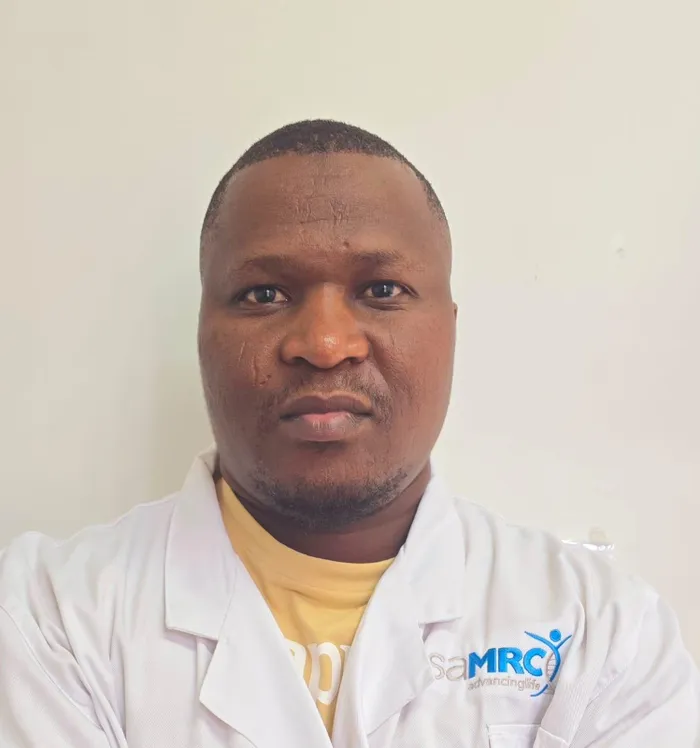Durban's young health professionals lead the way in HIV prevention and clinical trials

Terusha Navsaria is a research clinician/sub-investigator at Phoenix Clinical Research Site.
Image: Supplied
Young health professionals from Phoenix, Verulam, and Tongaat in Durban have been recognised by the South African Medical Research Council (SAMRC) as trailblazers in health and science.
The SAMRC stated that these young professionals are proving integral to advancing pharmaceutical services and clinical trial operations across SAMRC sites.
Clinical trials involve human volunteers to evaluate new medical interventions. They are a crucial step in the process of bringing new treatments to the public, ensuring safety and effectiveness. They are conducted ethically, approved by regulatory agencies, and require informed consent from volunteers, ensuring their rights, safety, and well-being.
SAMRC President and Chief Executive, Professor Ntobeko Ntusi, said these young professionals represent the energy, resilience, and brilliance of South Africa’s future scientific workforce.
“Our young researchers are not only advancing health innovation but also embody the SAMRC’s mission to build a healthier nation through research, innovation, and transformation.
“Their stories are proof that when we invest in youth, we invest in the solutions of tomorrow,” Ntusi said.
Common among the nominees is their desire to serve communities.
Terusha Navsaria, a research clinician/sub-investigator at Phoenix Clinical Research Site (CRS), works on clinical trials under the supervision of a principal investigator.
“We are both medical doctors responsible for the safety of our participants enrolled in these trials. I see participants and assess their safety, determining whether they can continue on the trial and receive study products, reporting of any adverse events, as well as reviewing lab results,” Navsaria.
She also participates in stakeholder meetings by visiting communities and local clinics to share the work of the SAMRC site and the various studies being conducted, properly disseminating information to prevent misconceptions.
One of her remarkable achievements was being part of the Purpose 1/Gilead study, which is a phase 3, double-blinded, multicentred, randomised study evaluating the safety and efficacy of twice yearly long-acting subcutaneous Lenacapavir and daily oral emtricitabine/tenofovir for pre-exposure prophylaxis in adolescent girls and young women at risk of HIV infection.
“What makes this study so wonderful is that not a single participant who was on the Lenacapavir arm contracted HIV. When the interim analysis was done, the data were so overwhelmingly good that the study was sped up, and all the participants were given the opportunity to receive open-label Lenacapavir.
“This is going to be a gamechanger for HIV in our country, and we are hoping with time that it becomes available in our clinics and hospitals as it has recently been approved by the Food and Drug Administration (FDA),” Navsaria said.

Simon Philasande Kakayo is a pharmacy manager at the Tongaat Clinical Research Site.
Image: Supplied
Simon Philasande Kakayo, a pharmacy manager at the Tongaat CRS, said he realised that scientific research is a powerful tool for innovation and wanted to be part of that transformative process.
As a pharmacy manager, he receives, stores, and manages investigational products following protocol and regulatory standards, and dispenses them accurately to participants as per study requirements.
He also collaborates with study coordinators and principal investigators for protocol adherence, and educates staff and participants on medication use, safety, and side effects, while ensuring compliance with Good Pharmacy Practice and Good Clinical Practice guidelines.
Kakayo has supported HIV prevention trials focused on empowering youth and women, has contributed to groundbreaking research on long-acting injectable HIV prevention methods, and has played a role in community-based research.
He believes that science is crucial to economic growth as it drives innovation, improves efficiency, and creates new industries.
“By supporting scientific research, countries can create a knowledge-based economy, leading to job creation, better public health, and improved quality of life, all of which contribute to economic growth,” he said.

Nomfundo Ntombela is a clinical data coordinator at the Verulam Clinical Research Site.
Image: Supplied
Nomfundo Ntombela, a clinical data coordinator at the Verulam CRS, ensures that data collection, capturing, and reconciliation are done accurately, timeously, and per protocols, standard operating procedures, policies, and guidelines.
She has contributed to the PrEPVacc study, an African-led, European-supported HIV prevention trial conducted across East and Southern Africa from 2018 to 2024, which evaluated the efficacy of two vaccine regimens in preventing HIV among both men and women.
“Our site, the only one in South Africa, was notable for enrolling over 300 participants. Additionally, I worked on the (HIV Prevention Trials Network) HPTN 084 study, which compared long-acting Cabotegravir injections to oral PrEP tablets for HIV prevention in women, demonstrating Cabotegravir’s effectiveness,” Ntombela said.
She is engaged in the Purpose 1/Gilead study and is also involved in the PALISADE study, a follow-up trial monitoring participants from the HPTN 084 study who continue using long-acting Cabotegravir.
As the sole clinical data coordinator in her research site, she managed the intricate data collection and analysis for over 300 PrEPVacc participants in a landmark HIV prevention trial, earning recognition as a trailblazing young professional.
“Through challenges such as tight deadlines and managing data for other studies, I improved the data quality by developing innovative data management systems that ensured accuracy, compliance with international standards, and timely reporting.
“My ability to troubleshoot technical issues independently and train site staff on data protocols strengthened the study’s operational efficiency. By maintaining resilience under pressure and providing critical insights that drove the trial’s success, I demonstrated leadership and a commitment to advancing health research,” she said.

Xolile Sikhosana is a clinical trial nurse at Phoenix Clinical Research Site.
Image: Supplied
Xolile Sikhosana, a clinical trial nurse at the Phoenix CRS, said her interest in scientific research was born out of a desire to find long-term, sustainable solutions to the health challenges affecting communities.
“I contribute to high-impact studies by supporting clinical trials and health systems research. My daily tasks include participant management, quality assurance, data integrity, and collaborating with multidisciplinary teams to ensure our work meets ethical and scientific standards,” Sikhosana said.
She has worked on clinical trials focused on HIV prevention, treatment adherence, and optimising patient-centred care models. She was part of the Purpose 1/Gilead study.
“I support awareness campaigns, collaborating with teams on World AIDS Day, Cancer Awareness Day, and now planning my own Mental Health Awareness Campaign. This is something I’m especially passionate about, as it gives both staff and participants the tools to care for their well-being beyond the clinic,” she said.
Knowing that my contributions helped move that work forward fills me with immense joy as a young scientist, she added.
“Being recognised by the SAMRC is not just a personal honour, it’s a reminder that our daily work matters. It inspires me to continue learning, uplifting others, and pushing boundaries in pursuit of a healthier South Africa,” Sikhosana said.

Megan Tamryn Lake is a clinical trial pharmacist at the Phoenix Clinical Research Site in Durban.
Image: Supplied
Megan Tamryn Lake, a clinical trial pharmacist at the Phoenix CRS, said she became a pharmacist because of a deep compassion to help people.
“Working at SAMRC has allowed me to work on clinical trial studies that focus on finding a solution for the future, eradicating HIV! I love that we get to be part of the scientific process, the trial and error, and the victory that comes with the positive outcomes.”
She has worked in different sectors within the pharmacy world, and clinical research has by far opened her eyes to what happens for a medical product to get to the market, the rigorous testing and ethics, to name a few.
“I am the associate pharmacist, and my daily duties mainly involve dispensing investigational and non-investigational products to participants according to the protocol, inventory control, temperature control of products, quality control, and quality assurance processes on clinical files. Clinical research has a lot of regulatory processes and administrative processes, which could be tedious but essential,” Lake said.
She was part of the Purpose 1/Gilead study and the ongoing TB study. The other sites she assisted complete HPTN and HVTN studies, she said.
The trailblazers praised the SAMRC for its empowering programmes, including technical skills, leadership training, and international collaborations, while also highlighting challenges.
Among the concerns was that young scientists often face limited funding, mentorship gaps, a lack of visibility or support structures, especially in rural areas, and many talented professionals are leaving research due to job insecurity or a lack of growth opportunities.
They said emerging researchers require structured mentorship programs, accessible funding, mental health support, and platforms to showcase their work.
gcwalisile.khanyile@inl.co.za